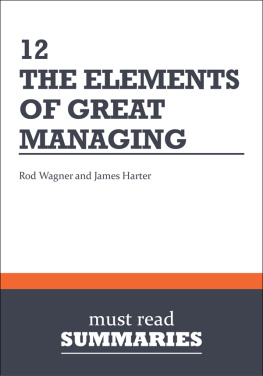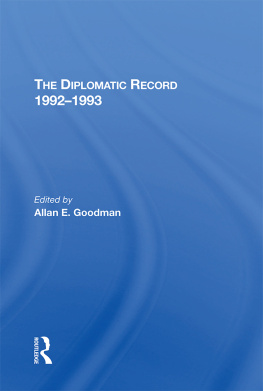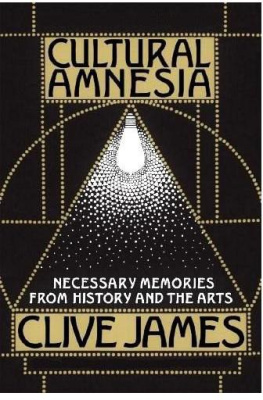This edition is published by PICKLE PARTNERS PUBLISHING www.picklepartnerspublishing.com
To join our mailing list for new titles or for issues with our books
Or on Facebook
Text originally published in 1925 under the same title.
Pickle Partners Publishing 2013, all rights reserved. No part of this publication may be reproduced, stored in a retrieval system or transmitted by any means, electrical, mechanical or otherwise without the written permission of the copyright holder.
Publishers Note
Although in most cases we have retained the Authors original spelling and grammar to authentically reproduce the work of the Author and the original intent of such material, some additional notes and clarifications have been added for the modern readers benefit.
We have also made every effort to include all maps and illustrations of the original edition the limitations of formatting do not allow of including larger maps, we will upload as many of these maps as possible.
SOCIAL AND DIPLOMATIC MEMORIES
(Third Series)
1902-1919
BY THE RIGHT HON.
SIR JAMES RENNELL RODD, G.C.B.
PREFACE
The two preceding volumes of my memories would have remained incomplete without a third carrying on the record until the end of the Great War, to which much of the matter contained in them seems now to have been a prelude. The reception accorded to the second not less than to the first series has, moreover, encouraged me to continue. My critics have been so consistently kind that there has been little in their comments to elicit a rejoinder. One reviewer from the other side of the Atlantic, however, gently protested against a tendency to intermingle with really serious matter stories in a lighter vein as being distracting to the reader. To him I would reply that l did not set out to write a history of my own times, but rather to give a picture of contemporary life, as I had seen it from posts of vantage. Since life is compounded of grave and gay, my picture would be unfaithful without the lighter element.
Another suggested that I must have been surprised myself at being able to compile three volumes of autobiography. I should be disposed to agree with him had these volumes been more than incidentally autobiographical. Their aim was rather to convey the atmosphere in which events of importance took shape, to describe certain phases of an old order which is passing away, and to throw a more familiar light on some of the personalities who have played an important part in public affairs. Thirty-seven years of diplomatic experience in foreign countries have provided ample material. So little did I seek to be autobiographical that in the earlier volumes I refrained as far as possible from expressing opinions of my own, and endeavoured to exclude matter which was only personal. It has been less easy in dealing with recent events to adhere to this principle, and occasions inevitably arose when conflicts of view in matters affecting the public service had also a personal element. For any opinions which may be here expressed I am solely responsible.
One further criticism which provokes a reply is that of having been too discreet. In an old public servant due reserve is not only a virtue, but an obvious duty, and it must be a condition of the publication of such memoirs. Some who have lived through exceptional times with exceptional opportunities for observation may feel tempted like Procopius to compile an Arcana Historia, supplementing the more circumspect judgments of men and things which it is legitimate to express. An unexpurgated history of experiences during the Great War might be an entertaining document. But it would record conclusions derived from sources which could not be properly used and appreciations which, though the author might not doubt their accuracy, could not be supported by evidence which would satisfy the judicial standard. There is, however, to my mind something antipathetic in posthumous criticism, and what it is not convenient to say openly is best buried and forgotten.
I wish to repeat, more especially in regard to this volume, that all that has been recorded here is derived from notes in my diaries, from letters written at the time and from memory refreshed by these. The sequence of events as I saw and interpreted them is fully dealt with in dispatches which remain available for examination at a proper time and place. I have not re-read any of my own dispatches since. There must always be much which eludes or would be out of place in an official report, and my present purpose has rather been to reproduce the ambience in which historic developments took place, and to supplement the balder narrative with more intimate appreciations.
Finally, I wish to emphasize that in describing the attitude of Italy immediately before and during the Great War, the story of which begins with the eighth chapter, I have endeavoured to convey what I believe to have been the general trend of popular opinion. Certain groups, certain individuals were no doubt inspired by more directly nationalistic or even imperialistic ambitions, and were less concerned with moral and ethical obligations. I do not pretend to have fathomed, as some writers claim to have done, the recesses of the minds of San Giuliano, of Salandra, of Sonnino, or even of Bissolati, for whose political appreciations I had a great respect. The important point for me was that Italy entered the war on the side of the allies at a very critical moment. And this she could not have done without the support of the nation constraining and overawing an admittedly neutralist majority in Parliament. It is the mentality of the nation and not that of individuals which I have endeavoured to interpret. The Italian temperament is an inheritance from an ancient marriage between the practical and the ideal, the Latin and the Lombard. The practical and logical spirit reaffirmed itself when the hour came to balance accounts. But in the valley of decision ideal considerations played a greater part than has been generally recognized. And the idealists have had their reward. For although the nation, influenced by an intensive process of suggestion from groups or individuals disappointed m particular aims, has not yet realized the fact, the material results of the war for Italy have, in my opinion, been more important and intrinsically more valuable than those achieved by any of the great powers engaged in the struggle.
I gratefully acknowledge a debt to my friends Mr. and Mrs. J. M. Trevelyan who have been so good as to look through the proofs of this volume.
CHAPTER I ROME, 1902
Lord Currie, Ambassador. Political situation. Prinetti, Sonnino, Giolitti. Diplomatic representatives. Social life. Intellectual Society. Monseigneur Duchesne. Sabatier. The Keats-Shelley Memorial. Ninfa. The Shah's visit. Illness of King Edward VII. Vallombrosa. Summer festivals. Kitchener in Rome.
In the first volume of these memories I have described the Rome which I knew as a boy of six, but little changed from the city of Hans Andersen's improvisatore. It occupied only a portion of the area surrounded by Aurelian's wall which enclosed a vast acreage of gardens, parks, and fascinating regions abandoned to ruin and solitude. Even on my second visit, not long after Rome became the capital of United Italy, the Via Nazionale had not been completed, while Santa Maria Maggiore and the Lateran Basilica with their dependencies were islanded among vineyards and fields of artichoke. By the time I joined the British Embassy in 1891, the vacant spaces had to a great extent been laid out in streets, but the speculative excesses of the building crisis, in which many fortunes and some reputations were compromised, had left a number of new constructions roofless. Others designed as pretentious residences had been invaded by a class of tenant whose occupancy only promised a pitiful return on the vast outlay of capital.












